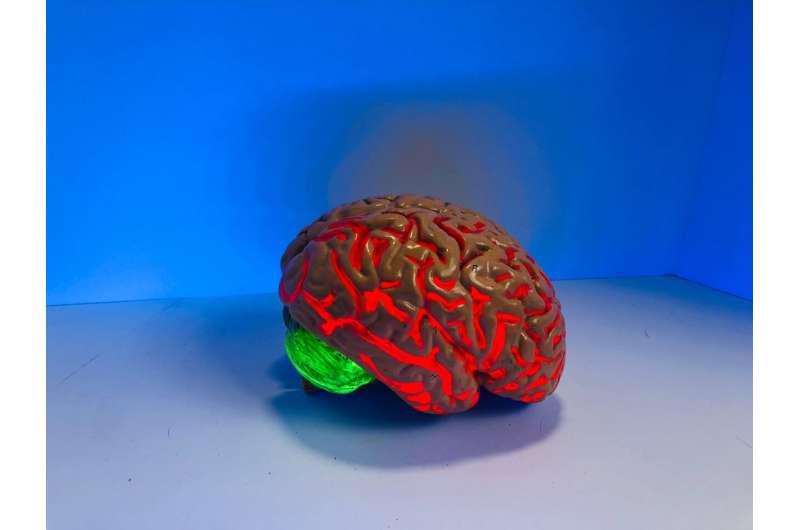This article has been reviewed according to Science X's editorial process and policies. Editors have highlighted the following attributes while ensuring the content's credibility:
fact-checked
trusted source
proofread
Anti-platelet therapy could help improve outcomes for patients with a deadly form of brain bleed

A new study has shown that anti-platelet therapy could help improve outcomes for patients with aneurysmal subarachnoid hemorrhage (aSAH), a deadly form of brain bleed.
Published in Neurosurgical Review and led by researchers from the Institute of Psychiatry, Psychology & Neuroscience (IoPPN) at King's College London, King's College Hospital NHS Foundation Trust, the United States of America and Singapore, the study reveals the positive impact of anti-platelet therapy in the aftermath of a brain bleed.
The results indicate that this treatment can reduce the chances of delayed blood flow to the brain and artery blockage, which can cause oxygen deprivation in the brain. This can ultimately increase the likelihood of good functional recovery without raising the risk of further bleeding events.
Research on this topic has been focusing on finding new treatments for delayed insufficient blood supply to the brain following aneurysmatic subarachnoid hemorrhage (aSAH), a deadly form of brain bleeding. It is believed that increased platelet activity and the resulting release of chemicals after aSAH, followed by clotting, may contribute to limited blood flow to the brain.
Anti-platelet therapy, which can counter this activity, has been suggested to limit the formation of small blood clots in the brain. Until now, studies have been inconclusive regarding the effectiveness of anti-platelet therapy after aSAH.
Lead author and Academic Junior Doctor at King's College Hospital and Honorary lecturer at IoPPN, King's College London, Dr. Keng Siang Lee, said, "Our research shows that anti-platelet therapy can improve outcomes for patients with aneurysmal subarachnoid hemorrhage, a deadly form of brain bleed. Anti-platelet therapy improves blood flow to the brain and enhances the chances of good functional recovery without an increased risk of bleeding events."
"Furthermore, this treatment, which is already commonly used for other conditions, could be readily repurposed for this condition. While further gold-standard randomized controlled studies are needed to validate our preliminary findings, the study provides useful insights that may help in designing future research."
More information: Keng Siang Lee et al, Antiplatelet therapy in aneurysmal subarachnoid hemorrhage: an updated meta-analysis, Neurosurgical Review (2023). DOI: 10.1007/s10143-023-02120-2


















